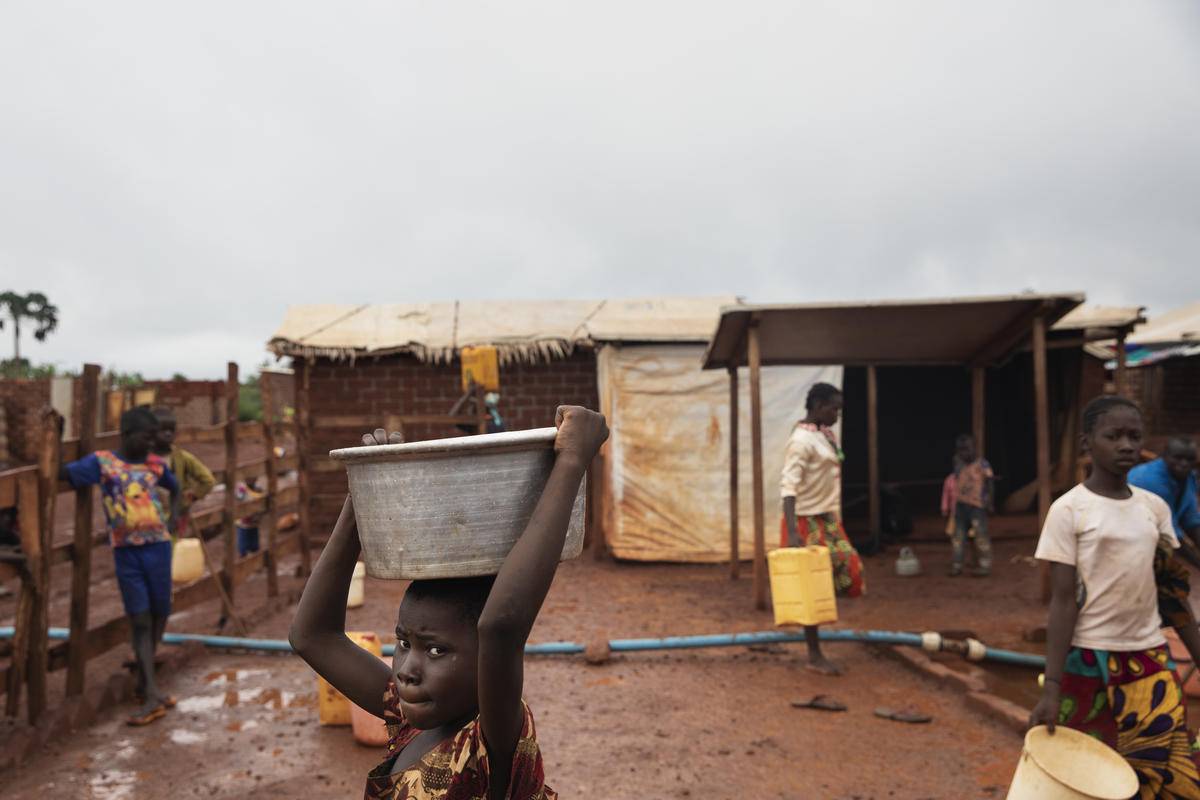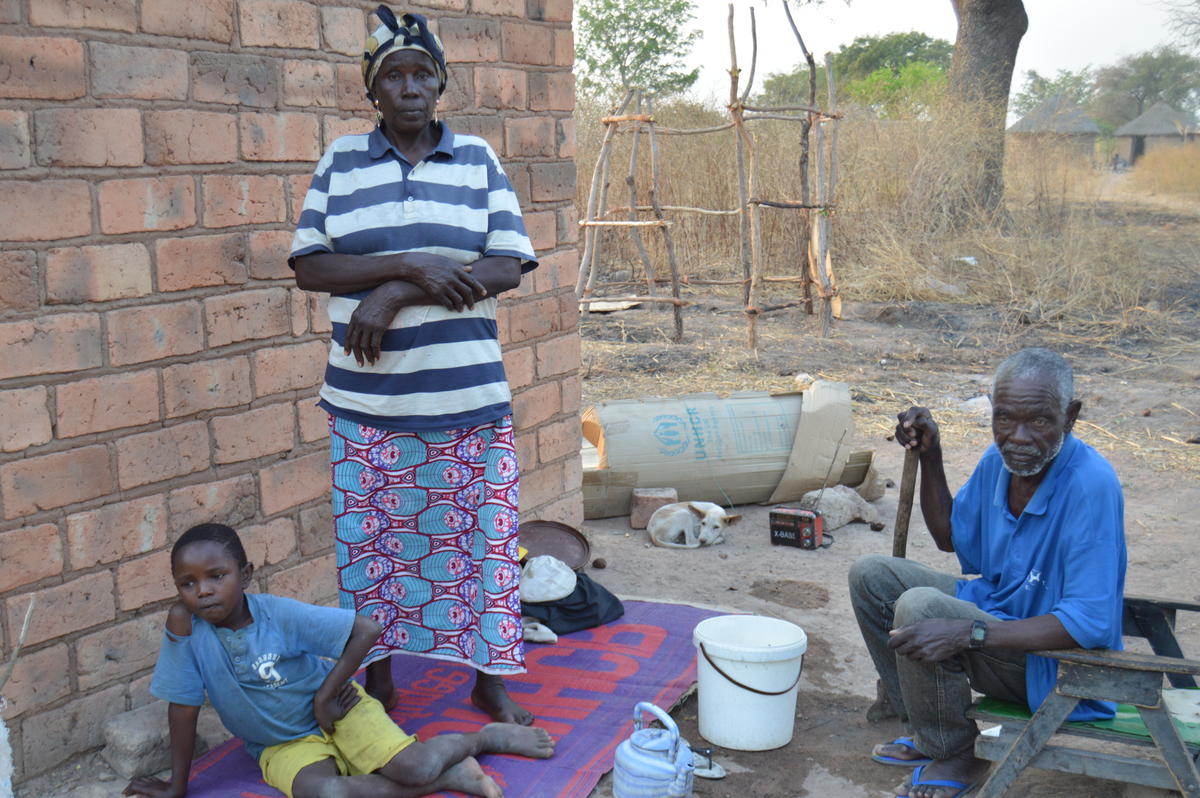CAR refugees turn hand to other jobs to fund exile in Cameroon
CAR refugees turn hand to other jobs to fund exile in Cameroon

MEIGANGA, Cameroon, Aug 12 (UNHCR) - Humming from the speakers of a nearby mosque breaks the silence of the pitch-black night. A shadow slips out of a cabin. She closes the door behind her and snuggles her hands in her loincloth. It is 4:30 a.m. and the cold is biting.
Philomène Issa, 50, has begun her day. "I'm off to the fields to plant seedlings," she explained in French dotted with Sango, her native tongue.
Like many others who fled bloodshed in the Central African Republic (CAR), the former nursery school principal has had to reinvent herself since fleeing to Cameroon one year ago. She lives on the edge of Meiganga, a city of 70,000 people in eastern Cameroon, but knows few people and has managed mostly on her own.
"I earn between 500 to 750 CFA francs (0.75-1.10 euros) a day," she said. She hopes to earn more to pay the rent. "I already have 2,000 francs, but I owe the landlord 3,000."
Philomène is one of over 131,000 refugees from CAR who have sought safety in Cameroon since fighting erupted back home in December 2013. The influx has strained host communities and aid agencies alike, yet funding for humanitarian assistance has barely reached 18 per cent of the US$ 145 million needed here this year. As a result, UNHCR and its partners have had to make hard choices. "The priority was to save lives," said Jose Katunda, who heads the refugee agency's regional office at Adamawa.
UNHCR has been registering refugees and helping to move them safely away from the volatile border, often to camps where humanitarian aid is provided. This concentrated approach helps maximise the impact of assistance, but also makes it difficult to reach those who, like Philomène, have chosen to settle in scattered towns and villages along the border. Half the CAR refugees in Cameroon are now living in camps linked to local villages, with a view to a better integration. Refugees there receive shelter, free health care and a monthly food allowance.
But the other half has settled in towns and villages in the Eastern and Adamawa regions. Some did so by choice, seeing it as a more dignified way of living their exile. Others, like Philomène, gravitated there because they lacked information about the camps. In total, these out-of-camp refugees are scattered across more than 300 different locations, many of them quite remote, where international aid cannot always be made available. "With limited resources, we have had to concentrate our action in protective activities: refugees' registration and documentation," Katunda said.
UNHCR now encourages the settlement of refugees in local villages rather than in camps or sites, where overcrowding can exacerbate social tensions. To facilitate their integration and help them become self-reliant, these refugees receive small loans to allow them to start business activities - particularly those who are isolated and vulnerable, like Philomène.
UNHCR also provides "assistance in the form household goods, drinking water and food," which they often lack, added Katunda. That's good news for Philomène.
Managing on her own, she has found limited work as a day labourer, working for a Cameroonian man, plucking and replanting zom, a local vegetable. Working is her only option for survival.
"If I cross my arms and stay home, who is going to give me enough to live?," she said.
Philomène misses her three sons. "They are already studying at the university in Bangui. I last heard from them a year ago. I'm alone here and I don't like that," she muttered. When conflict erupted, ethno-religious communities assaulted each other. Militia from the former Seleka burnt her house and killed several of her neighbours.
"To this day I still don't know whether my brothers are dead or alive." She only managed to save two loincloths and a copy of The Bible in which she keeps an old picture of her home. Today, Philomène finds solace in God and goes to church every Sunday.
In spite of the violence, Philomène holds no resentment towards her attackers. "Muslims from Central Africa belong in Central Africa. They too suffer, they too want to go home." She called on the international community to restore peace in her country. "One thing is certain,I will vote in the presidential election scheduled for 2015 as my contribution for restoring peace".
By Baptiste de Cazenove in Meiganga, Cameroon








